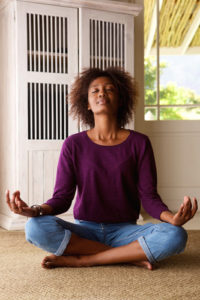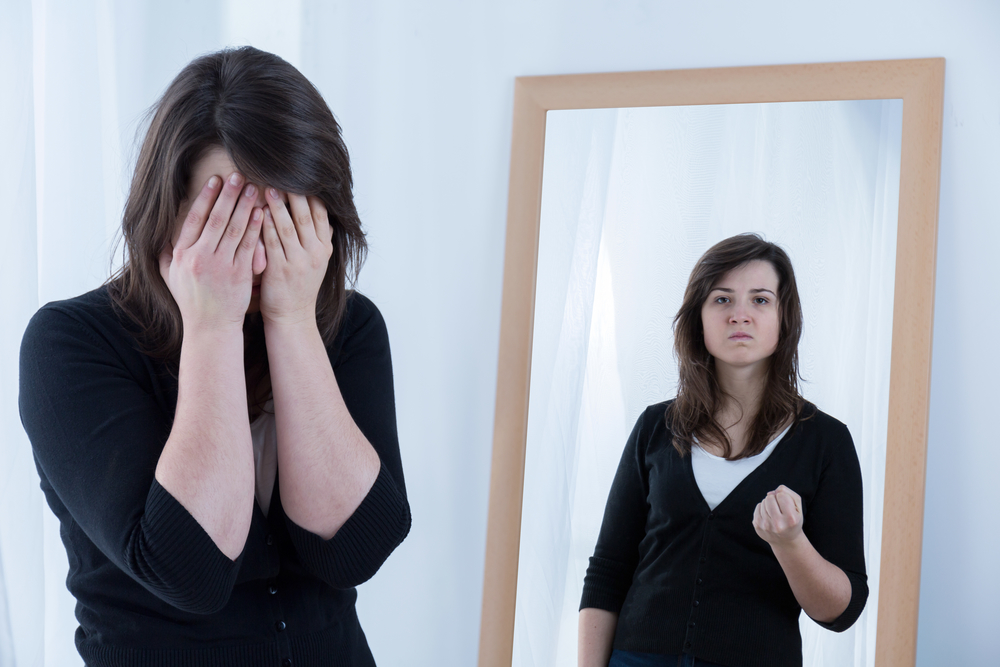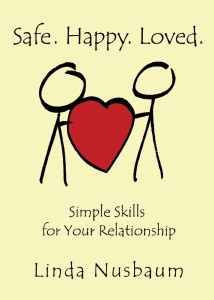Self-criticism can stem from our own good internal guidance system. But when it does, it can often feel cold and even mean. All of us grow up with some sort of inner guidance. When things don’t work out well we often tell ourselves something so we remember to do whatever it was better in the future. This is essential to growing up.
Our Self-Monitoring Can Become a Toxic Form of Self-Criticism

But some of us don’t just do this with encouragement, we do it with hard punches. Think about how you talk to yourself when you make a mistake. What do you say? Before I became aware of how I treated myself I probably said things like, “Oh how stupid!” or “How could you have done that.” And even “I hate you.”
Some of us don’t even bother with saying stuff, we just go right to a really awful feeling about ourselves. This feeling can just inhabit our body and mind and stay with us for a long time.
So, why do we do this? It is something all of us learn as a way to not make errors. When we were little maybe we didn’t want to have our parents get disappointed or mad at us so we would become the voice of our parents inside our own heads. If we figure out something didn’t happen right we might begin to say, “Do it better. I can do it better next time.”
Self-Criticism is a Habit We Grow Into, But Can Also Grow OUT Of

In the beginning, all of us are innocent. But after years and years of relying on ourselves to find motivation, we might get burdened by the fact that when we are constantly learning new things we are often bogged down with always trying to do something better.
Some of us call this system “self-criticism.” But that expression makes everyone feel bad about themselves. I prefer to say, “You created an internal cheering system, which is now a harsh taskmaster.” And then we get to ask the question of ourselves, “Do I like answering to a harsh taskmaster?”
I know my answer: “No!” I bet this is your answer too. And yet we listen to ourselves beat up on us without flinching. I want to invite you to take a look at how you treat yourself. Pay attention to what you say to yourself. And then ask yourself, “Do I feel good when I say or feel these things?”
You will probably answer “no” to that too. Here is one way to begin to think about this. Think of yourself as a friend. Treat yourself as your friend.
Practice Forgiving Yourself, Instead of Beating Yourself Up

I tried this recently. I was walking my little dog. She was in a neighbor’s yard. I was focusing on her and inadvertently stepped on some brand new cacti. I was startled when I heard the crunch under my feet. I thought, “Oh no,” and I moved back quickly, only to step on another one! And then moved again stepping on a third!
I tiptoed off the lawn and thought about the plants. I sent them a lot of love and good energy asking them to come back and telling them they would be OK. Then I started to feel bad but I thought, no, I felt bad about what I did, but I just kept saying to myself, “You are alright. You didn’t mean to hurt them. You are all right. You are a good person. You are all right.”
I continued the walk and I felt better. The bad feeling left completely. It worked. Maybe it can work for you too.
Reduce Self-Criticism by Improving Your Internal Communication Skills
Read a Book About Relationships
If you’d like a helping hand with phrasing things more softly and less critically, try reading Linda’s book Safe. Happy. Loved. Simple Skills for Your Relationship. It just might help you develop a gentler touch in both dealing with yourself and your partner. Give it a read.
Get Couples Counseling
Come in for couples counseling. Couples counseling can help you and your loved one get the most out of your relationship. It'll equip you with coping strategies and tools for communication that can help you argue less and love more.


